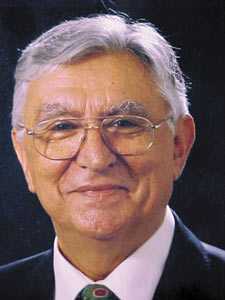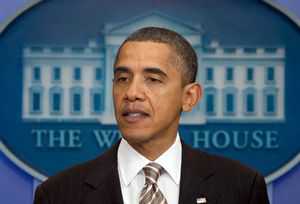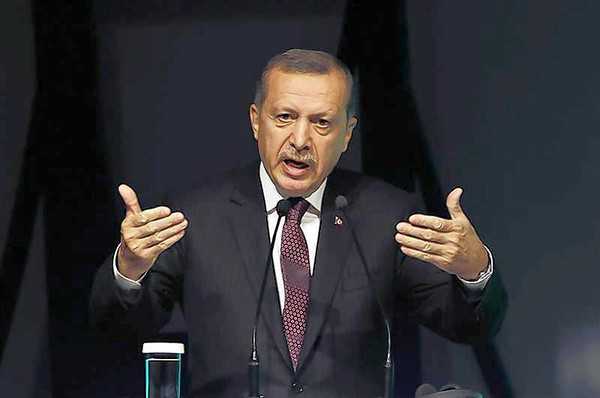Ermeni Tasarisi Elestirisi

ABD Temsilciler Meclisi Dis Iliskiler komitesinde Ermeni iddialarini iceren karar tasarisinin 04 Mart 2010 persembe gunu yapilan oylamada bir oy farkla kabul edilmesi ile baglantili olarak, yabanci medyada cok sayida yorum ve kose yazisi yayinlandi. Asagida, Henry Barkey’in Washington Post’ta yer alan makalesine yanit olarak bir fransiz arastirmaci Maxime Gauin’in okuyucu mektubunu aktariyorum. Gauin, bu yazisinda, jenosid iddiasinin neden temelsiz bir suclama oldugunu ozlu bicimde acikliyor.
Pulat Tacar [[email protected]]
Turkish Forum danisma kurulu Uyesi,
Buyukelci (e),
UNESCO Türkiye Milli Komisyonu Başkan Vekili
MAXIME GAUIN’IN HENRY BARKEY’IN
WASHINGTON POST’TA CIKAN MAKALESINE
GONDERDIGI OKUYUCU MEKTUBU
“Mister Barkey,
Your article “The Armenian Genocide Resolution is a Farce all Around” https://www.washingtonpost.com/wp-dyn/content/article/2010/03/02/AR2010030202375.html?waporef=obinsite) is an interesting and iconoclast analysis; unfortunately, among the pertinent remarks, there is this big error:
“To be clear, the overwhelming historical evidence demonstrates that what took place in 1915 was genocide.”
1. Many respectable historians criticize the “genocide” label, including Roderic H. Davison, Gwynne Dyer, Edward J. Erickson, Michael M. Gunter, Paul B. Henze, J. C. Hurewitz, Yitzchak Kerem, Bernard Lewis, Guenter Lewy, Heath Lowry, Justin McCarthy, Andrew Mango, Robert Mantran, Jeremy Salt, Stanford J. Shaw, Norman Stone, Gilles Veinstein and Robert F. Zeidner.
2. There is simply no evidence of a genocide intent.
— Gwynne Dyer demonstrated as early as 1973 that Mevlanzade Rifat’s book is a crude falsification, and even Yves Ternon, strongly favorable to Armenian nationalists, considers this work as more than dubtious.
— The “Andonian documents” were proved to be forgeries, more than twenty-five years ago: Christopher Walker, who believed in 1980 to the authenticity of “Andonian documents” suppressed almost all references to this material in the second edition of his book (Armenia. The Survival of a Nation, London, Routledge, 1990), then wrote in an article that “doubt must remain until and unless the documents or similar ones themselves resurface and are published in a critical edition” (“World War I and the Armenian Genocide”, in Richard G. Hovannisian, [ed.], The Armenian People from Ancient to Modern Time, New York, St Martin’s Press, 1997, p. 247). Absolutely no effort in this sense was made since 1997: it is perhaps the best evidence that Andonian material is nothing but a forgery.
— The “Ten Commandments” are a another forgery. As early as 1973 Gwynne Dyer demonstrated that the authenticity is highly questionable. More recently, even the strongly pro-Armenian historian Donald Bloxham noticed (“Donald Bloxham replies”, History Today, July 2005, Vol. 55, Issue 7) : “Most serious historians accept that this document is dubious at best, and probably a fake. It was the subject of controversy some twenty years before Dadrian rediscovered it for publication in 1993. The document’s donor originally offered it for sale to the British authorities in February 1919, a time when numerous fraudulent documents were in circulation.”
The late Stanford J. Shaw, former professor of Turkish history at Harvard, University of California-Los Angeles and Bilkent noticed: “The British and French authorities to who they had been handed pointed out that they were at complete variance with Ottoman style and vocabulary and were obvious forgeries, as a result never using them in courts of law” (From Empire to Republic. The Turkish War of National Liberation. 1918-1923, Ankara, 2000, tome I, p. 316). Similarly, British historian Jeremy Salt, considers that the text is “certainly a fake” ).
— Ambassador Morgenthau’s story, which was not considered as a reliable source by actual American specialists like George Abel Schreiner and Horace C. Peterson, is refuted even by the personal archives of Morgenthau himself. See Ralph Elliot Cook, The United States and the Armenian Question, 1894-1924, Ph.D. dissertation, Flertcher School of Law and Diplomacy, 1957, p. 129; Heath Lowry, The Story Behind “Ambassador Morgenthau’s Story”, Istanbul, The Isis Press, 1990 (available online: http://www.eraren.org/index.php?Lisan=en&Page=YayinIcerik&SayiNo=19) and Guenter Lewy, The Armenian Massacres in Ottoman Turkey, Salt Lake City, University of Utah Press, 2005, pp. 140-142.
— The Special Organization was accused by Arthur Beylerian, V. Dadrian and Taner Akçam to be a key of “racial extermination”, but only in using falsified quotations and in neglecting the archival material of this organization, as demonstrated by Guenter Lewy and Edward J. Erickson: https://www.meforum.org/748/revisiting-the-armenian-genocide https://www.meforum.org/991/armenian-massacres-new-records-undercut-old-blame
— The Turkish martial-courts of 1919-1920 violated all the basic rights of defense, and all their original material is lost, as explained by Guenter Lewy in his article and his mentioned before. See also Ferudun Ata, İşgal İstanbul’unda Tehcir Yargılamaları (“The Istanbul Trials of Relocation”), Ankara, TTK, 2005.
3. It is not true that Western sources support mostly the “genocide” allegations.
US journalist George Abel Schreiner, who traveled extensively in Anatolia, wrote that “Turkish ineptness, more than intentional brutality, was responsible for the hardships the Armenian subjected to” (The Craft Sinister: A Diplomatic History of the Great War and Its Causes, New York, G. Albert, 1920, pp. 124-125).
Swedish journalist G. H. Pravitz published an account of his trip in Eastern Anatolia then in Arab provinces, in his newspaper Nya Dagligt Allehanda, April 23, 1917. He concluded that there was no campaign of extermination and that all the allegations of massacres which he checked were false (http://www.tallarmeniantale.com/swedish-eyewitness.htm).
Heinrich Bergfeld, German consul in Trebizond, who served eight years in Turkey and spoke Turkish, checked rumors of “massacre” in his region, together with the US consul Oscar Heizer, on July 17, 1915: they concluded that the rumors were baseless; in other occasions, Bergfeld denounced crimes against other convoys of displaced Armenian, who indeed occurred this time (Guenter Lewy, op. cit., pp. 145-146).
William Peet, the American head of international Armenian relief effort in Istanbul, recalled that Talat Pasha “gave prompt attention to my requests, frequently greeting me as I called upon him in his office with the introductory remark: ‘We are partners, what can I do for you today?’” (Louise Jenison Peet, No Less Honor: The Biography of William Wheelock Peet, Chattanooga, E. A. Andrews, 1939, p. 170).
H. Philips, diplomat serving in US embassy of Istanbul, sent on September 1st, 1916, a report concluding that atrocities were committed by local officials, without orders from central government (Guenter Lewy, op. cit., p. 231).
Otto Liman von Sanders, chief of German military mission in Ottoman Empire, and not exactly a Turkophile, explained that “In the execution of expulsions many of the terrible and damnable cases of ruthlessness may unquestionably be ascribed to the minor official whose personal hatred and rapacity gave the measures ordered from above enhancement of harshness that was not intended [by Ottoman government]” (Five Years in Turkey, Annapolis, U.S. Naval Institute, 1927, p. 157; translated from German by Carl Reichmann).
The report of General Harbord, approved by US Senate in 1920, does not mention any “extermination campaign” but war crimes from both sides (see the full text online: . The report of Emory Niles and Arthur Sutherland supports the same conclusion, with more details ).
Moreover, the compilation of German documents published by Johannes Lepsius in 1919 was proved to be not only selective, but also full of dishonest ellipses and even containing pure and simple manipulations of texts, as a systematic comparison between the originals of German archives and the published version demonstrates (Cem Özgönül, Der Mythos Eines Völkermordes, Cologne, Önel Verlag, 2005).
4. The “genocide recognitions” forget the crimes committed by Armenian nationalists.
— The crimes committed against the Armenian population herself.
Armenian Revolutionary Federation and Hunchakian Party killed many decent Armenians, who were loyal to Ottoman Empire, or at least, denounced the methods of gangsters used by revolutionary committees, including the Armenian chief of Ottoman police in Bitlis, assassinated in 1898, and the mayor of Van Bedros Kapamajian, assassinated in 1912 (see, among others: Kapriel S. Papazian, Patriotism Perverted, Boston, Baikar Press, 1934, pp. 13-18 and pp. 68-73; Justin McCarthy, “The Armenian Uprising and the Ottomans”, Review of Armenian Studies, 7-8, 2005).
The Armenian revolutionary committees claimed their responsibility in the massacres of Armenians of WWI, explaining that they organized insurrections and recruitment of volunteers for Russian an French army in guessing perfectly the tragic consequence (Gareguine Pasdermadjian, Why Armenia Should Be Free, Boston, Hairenik Press, 1918, p. 43; Aram Turabian, Les Volontaires arméniens sous les drapeaux français, Marseille, Imprimerie nouvelle, 1917, pp. 41-42).
— Then, the great massacres of Muslim and Jewish civilians.
Haig Shiroyan, an Ottoman Armenian who became an US citizens, wrote in his Memories: “The Russian victorious armies, reinforced by Armenian volunteers, had slaughtered every Turk they could find, destroyed every house they penetrated” (Smiling Through the Tears, New York, 1954, p. 186). Niles and Sutherland, in their report mentioned before, noticed: “Armenians massacred Musulmans on a large scale with many refinements of cruelties” and that “Armenians are responsible for most of the destruction done to towns and villages”.
Ottoman archives are full of first-hand accounts about atrocities committed by Armenian volunteers, including burning of babies, cutting of women’s breast, etc.; many documents were translated into Western languages: https://louisville.edu/a-s/history/turks/Documents2.pdf https://louisville.edu/a-s/history/turks/turcs_et_armeniens.pdf Archeological excavations, carried out in Eastern Anatolia thanks to documents and very old survivors, discovered several thousands of skeletons, from 1986 to 2003, identified thanks to specific clothes, small Korans, bullets, and, for the last mass graves, thanks to DNA tests.
— Finally, the Armenian terrorism which supported the “recognition movement” — and was supported by ARF, Hunchak and some personalities of Ramkavar/AGBU. Armenian terrorists killed at least 70 persons, wounded more than 500, and perpetrating 160 attacks by explosives.
One of the Armenian terrorist groups was simply a branch of ARF (Francis P. Hyland, Armenian Terrorism: the Past, the Present, the Prospects, Boulder-San Francisco-Oxford, Westview Press, 1991, pp. 61-62; Gaïdz Minassian, Guerre et terrorisme arméniens, Paris, Presses universitaires de France, 2002, pp. 28-37 and 106-109; Yves Ternon, La Cause arménienne, Paris, Le Seuil, 1983, pp. 218-224). ARF of Californian and elsewhere celebrates the racist murderer Hampig Sassounian, sentenced to life by Californian justice, currently in a Californian jail (among many other examples: www.asbarez.com/45716/sassounian-thanks-community-for-continued-support/ www.asbarez.com/46446/more-than-70-000-raised-for-hampig-sassounian-defense-effort/ www.fra-france.com/print_article.php?id=56).
Mourad Topalian, one of the most active Armenian American lobbyists, former president of Armenian National Committee of America, was sentenced in 2001 to 37 months of jail for illegal storing of war weapons and explosives, linked to a terrorist organization. Vicken Hovsepian, principal leader of ARF in USA, was sentenced in 1984 to six years of jail for participation to an attempt of bombing.
Who recalled the terrorist past activities of these peoples during the debate about “genocide” resolution?
In hoping to read more balanced accounts of WWI and Armenian terrorism in your articles,
Regards,
Maxime Gauin,
Paris”










